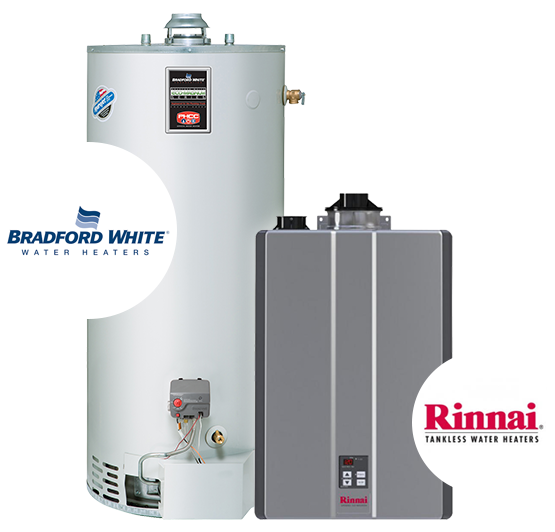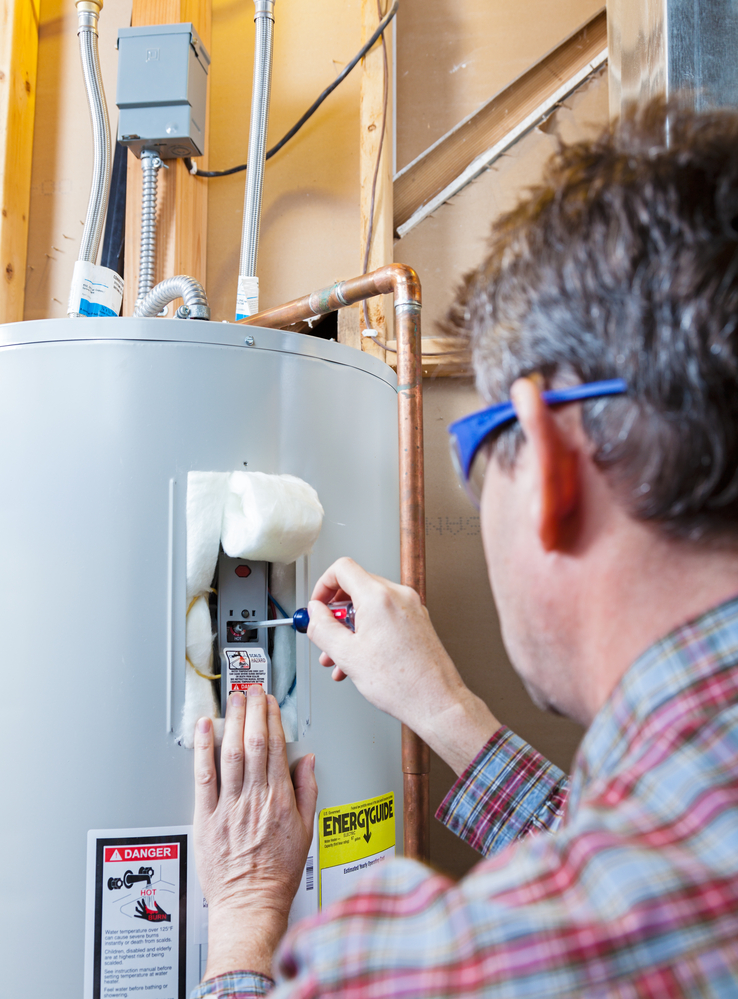Affordable plumbing engineers for water heaters
Tankless Style Heaters

Tankless water heaters, also known as on-demand type or instant water heaters, provide hot water only when it is needed. They don’t produce the constant energy consumption linked with storage water heaters, which can save money. Here you’ll find basic information about how they function, whether a tankless water heater might be right for your home, and what criteria to use when selecting the right model.
How They Work
Tankless water heaters heat water instantly without the use of a storage tank. When a hot water faucet is turned on, cold water passes through a heat exchanger in the unit, and either a natural gas burner or an electric element heats the water. As a result, tankless water heaters deliver a constant stream of hot water. You don’t need to wait for a hot water tank to fill up with enough hot water.
Normally, tankless water heaters provide hot water at a rate of 2–5 gallons per minute. Between a gas-fired tankless water heaters and electric ones, the former produce higher flow rates. Sometimes, even the biggest or largest gas-fired model cannot supply enough hot water for simultaneous, multiple uses in large households. To tackle this problem, you can install two or more tankless water heaters. You can also install different tankless or on-demand water heaters for appliances that use a lot of hot water in your home. However, installing more water heaters will cost more and may not be worth the additional cost.
Advantages and Disadvantages
For households that use 40 gallons or less of hot water daily, on-demand water heaters can be 24 percent to 34 percent more energy efficient than conventional hot water tanks . They can be 8 percent to 14 percent more energy efficient for households that use a lot of hot water — around 85 gallons per day. In most cases you may be able to attain even greater energy savings if you install a on-demand water heater at each hot water outlet.
The actual cost of a tankless water heater is higher than that of a traditional storage water heater, but tankless water heaters will usually last longer and have lower energy and operating costs, which could neutralize.their higher purchase price. Most tankless or on-demand water heaters have a life expectancy of more than 20 years. They also have easily commutable
parts that may help extend their life by many more years. Typically, hot water tanks last up to 10–15 years.
Tankless water heaters avoid the regular heat losses associated with conventional water heaters. Although, gas-fired tankless water heaters tend to have higher flow rates than electric ones, they can consume energy if they have a pilot light. This can sometimes neutralize the elimination of constant energy losses when compared to hot water tanks. In a gas water heater, the pilot light heats the water in the tank so the energy isn’t wasted or consumed carelessly.
The operation cost of a pilot light in a tankless water heater varies from pattern to pattern. Review the manufacturer’s literature to determine how much gas the pilot light uses for the pattern you’re considering. Selecting a Tankless Water Heater
Before buying a tankless water heater, you also need to check out the following:
- The Size
- The Fuel type and availability
- The Energy efficiency
- The Costs
- Installation and Maintenance
- Proper installation and maintenance of your tankless water heater can enhance its energy efficiency.
Proper installation relies on many factors. These factors include fuel type, climate, local building code requirements, and safety issues, mainly concerning the combustion of gas-fired water heaters. Therefore, it’s best to have a qualified water heater technician install your tankless water heater.
Periodic water heater maintenance and inspection can significantly improve your water heater’s life and reduce loss of efficiency.


Improving Energy Efficiency
After your tankless water heater is properly installed and maintained, try some additional energy-conserving options to help lower your water heating bills. Some energy-conserving devices and systems are more cost-effective to install with the water heater.
Becoming increasingly known are the smooth, space-saving and energy-efficient tankless or on-demand water heaters. Amazing in providing hot water on demand, these tankless water heaters are just the best for the modern home.
Denver Water Heaters can help you select your new water heater system based on all the essential factors including energy-efficiency, capacity, design and budget. Denver Water Heaters are Denver’s tankless hot water specialists.
We can give you a free estimate. Tankless Water Heaters have a variety of names such as Endless Hot Water- Water Heaters and On Demand Water Heaters. These various names all point to the several benefits to picking this type of water heating option.
A Tankless Water Heater means that there is no tank to store heated water. This is because the water is heated immediately in a small heating unit that is fixed on the wall and takes very little space.
There are electric and gas alternatives for all Tankless or On-Demand Water Heaters depending on what is best for your home. Our certified, professional and insured technicians can help you decide what will be the best fit for your needs. Call us now to get a free quote on Tankless Water Heater Installation. xxx-xxx-xxxx.
Frequently Asked Questions
Do electric water heaters consume lots of electricity?
Normally, a hot water heater that uses a tank will function for three to five hours per day. So, a 4,000-watt heater used for three hours a day at 10 per kWh will cost $1.20 per day, and about $36.50 per month, or $438 per year.
Are electric water heaters worth it?
If you are contrasting the efficiency of an electric water heater vs a gas water heater, electric heaters are more efficient or effective. Although gas water heaters are less expensive to run monthly due to the low cost of natural gas—a gas heater consumes more energy to operate and releases waste into the environment.
How long should an electric water heater last?
Based on the manufacturer’s or producer’s suggested service life, the life expectancy of a water heater is about eight to 12 years. That differs with the location and design of the unit, quality of installation, maintenance schedule and water quality.
Is it cheaper to heat water with gas or electric?
When purchasing a water heater, electric water heaters cost less than gas water heaters. While it’s always possible to purchase expensive water heaters in either electric or gas types, if you want a less expensive or cheaper heater, it will usually be electric.
